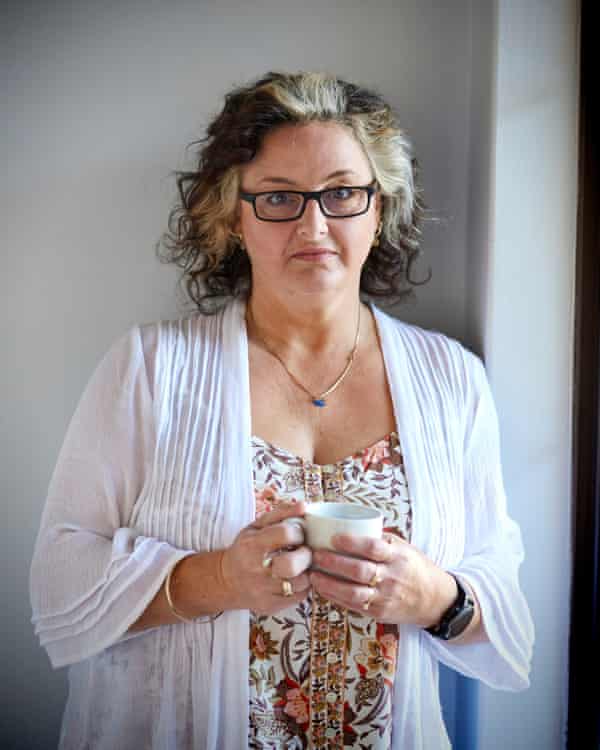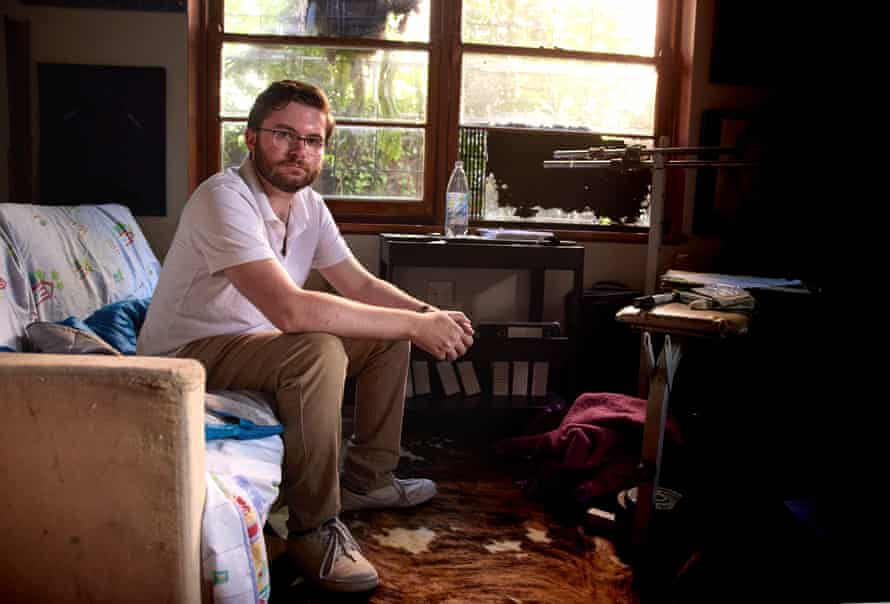‘No one would choose to live like this’: the tough reality of living on welfare
An eye-opening documentary series lays bare the truth of life on the poverty line
Paid for by
 About this content
About this contentWed 10 Nov 2021 10.20 AEDT
Australia spends more than $180 billion a year on welfare, but that has to go a long way. As anyone who has subsisted on government support will tell you, trying to make ends meet is tough.
TV presenter, author and cook Julie Goodwin and Greens MP Jenny Leong have discovered the reality of life on the breadline to be far harsher than either of them expected. Along with journalist Caleb Bond, they took part in the upcoming three-part SBS documentary series, Could You Survive on the Breadline?, in which they experienced what life is really like for the millions of Australians who live below the poverty line on welfare. It was an experience that pushed them all far beyond their comfort zones.

“I found it immensely confronting,” Goodwin says.
“I found it immensely confronting,” Goodwin says.
Goodwin spends her first night on the program in emergency accommodation, leaving her $40 a day to cover all her expenses. She says while some may think that is enough to survive on, thinking about other issues that might crop up added to the stress.
“I was driving a car that had problems with its tyres and in the back of my mind I kept thinking, if something goes wrong with the tyres it will eat into my allowance for the day,” she says. “If I needed to pay for a prescription or if I needed anything, that would all eat into the amount I had to spend.”
Leong, meanwhile, spends her first night with Shenane – a survivor of domestic violence living in public housing. During Leong’s stay police are called to intervene in a domestic violence incident in the neighbouring apartment. Leong worries about how witnessing such altercations is affecting Shenane.
“She is a survivor and a victim of domestic violence and has had her children taken away from her,” Leong says. “She needs to be rehabilitated, and instead of being placed in a safe space she’s put in an environment where she’s triggered multiple times a day by trauma.”
As Leong discovers, it’s not just Shenane who lives in inadequate public housing. The next day she meets Simone, who, with her young son, lives in a house infested with cockroaches and rodents.
“It made me so angry to witness the conditions that Simone was forced to live in with a disability and a small child,” Leong says. “Every point in the system was making it hard for her.”
The black mould in her child’s room meant Simone wouldn’t have him sleep in there. Things had become so bad that Simone was unable to eat inside her house because of pests crawling over the food. “It was devastating to see the circumstances that people were living in,” Leong says.
Bond says taking part in the show was certainly a difficult and eye-opening experience. “I suppose I came with a set of preconceived notions, some of which were cemented and others that were challenged,” he says. “I’d like to think the viewers can go on a similar journey. Some of it is not all that surprising, but much of the reality is beyond words.”
Goodwin, meanwhile, spends time with Debe, who is a full-time carer for her husband, Ron. Debe estimates she puts in more than 120 hours a week caring for Ron, which means she ends up earning just under three dollars an hour.
“I found the whole situation incredibly moving,” Goodwin says after Debe confides she has to rely on Foodbank for her groceries. “It made me really sad. They are a couple that contributed to society and yet here they are, having to rely on charity to eat.”
The access and affordability of food is a major issue that affected both women. Goodwin relies on a $10 barbecue chicken from the supermarket to do her over three dinners, noting that ingredients such as fresh herbs and spices “become items of luxury when you’re in such a situation”.

Caleb Bond was shocked that so many people on welfare can’t get the help they need.
Advertisement
Meanwhile, Leong goes a whole day subsisting on a banana. But as she discovers, the problem is not just not having enough to eat, but being unable to sit down for a meal or a drink with someone.
“Food is critical,” Leong says. “But as someone who loves to share a meal and share a drink, being able to invite someone to my home and being able to shout someone a coffee when you’re out … these things disappear. There’s an immediate isolation level because I couldn’t even say to people, let’s sit down and have a coffee, because I couldn’t afford a coffee. I didn’t have any money in my pocket.”
The stark feeling of isolation was something Goodwin experienced as well. “When you’re living in poverty, isolation is a lot more serious than you think,” she says. She mentions how it felt to not be able to have someone come over in a place not fit for visitors, and like Leong, says losing the ability to even have a coffee with someone had a major impact on her.
Leong agrees, saying: “The biggest shock was the sense of isolation and the sense of lack of control and the stress that causes day to day.”
Both believe there is a lot more that can be done for those stuck in the welfare system. For Goodwin it begins with understanding. “We need to have more compassion from the people in power,” she says. “And we need to stop perpetuating an attitude that people getting welfare are bludgers. Not one person was happy to be on welfare.”
Leong has a similar view, saying: “We need to recognise people need more respect and support. The way people are treated is disgraceful. The system needs to change. It should be a system that is generous in its assumptions towards people because they are the most vulnerable people in our community.”
Bond agrees, and was particularly shocked that so many people on welfare are “genuinely struggling and can’t seem to get the help they need”.
Ultimately, all the participants agree that nobody wants to live a life on welfare. Goodwin says: “The decision [whether] to put petrol in your car so you can visit your family or eat a meal is not a choice anyone would want to make.”
Leong says viewers will “see and hear the reality of what life is like for people who have to face the insecurity, uncertainty and stress of not having enough money, or not having a safe, secure and habitable place to live every day”.
Could You Survive on the Breadline? premieres on 17 November at 8.30pm on SBS and SBS On Demand.
No comments:
Post a Comment